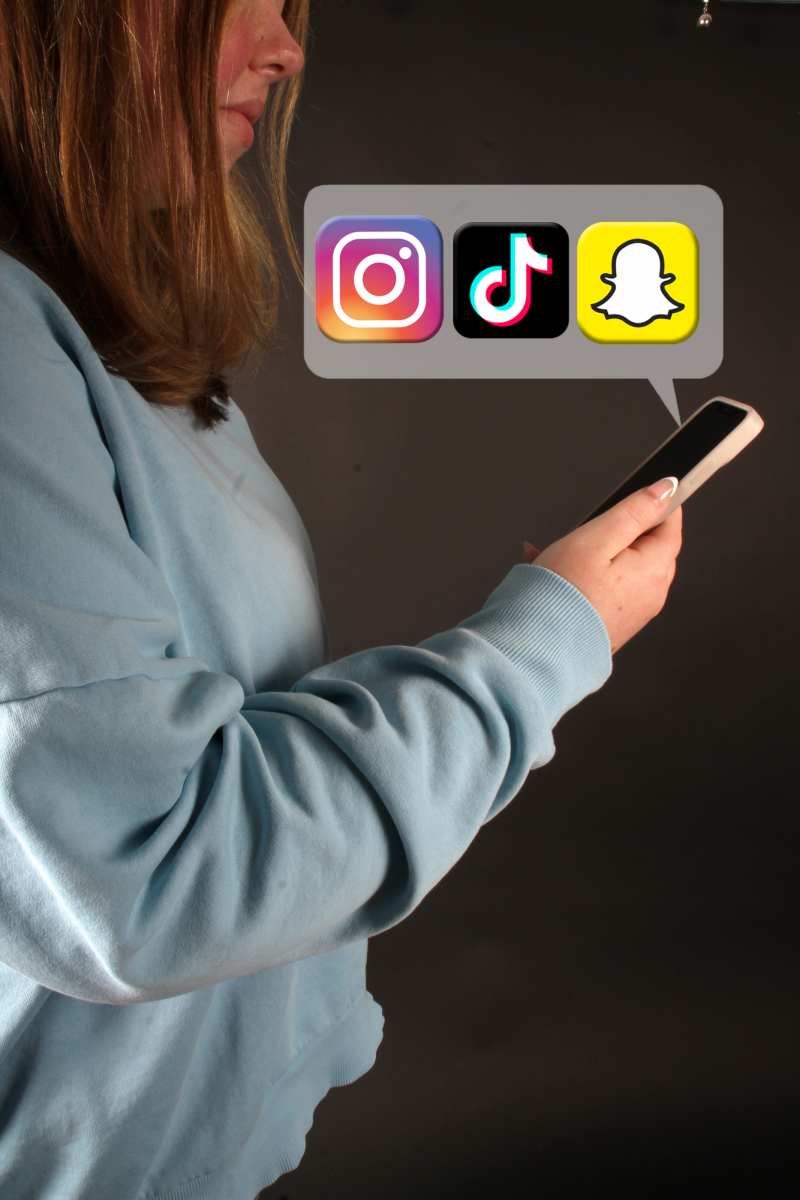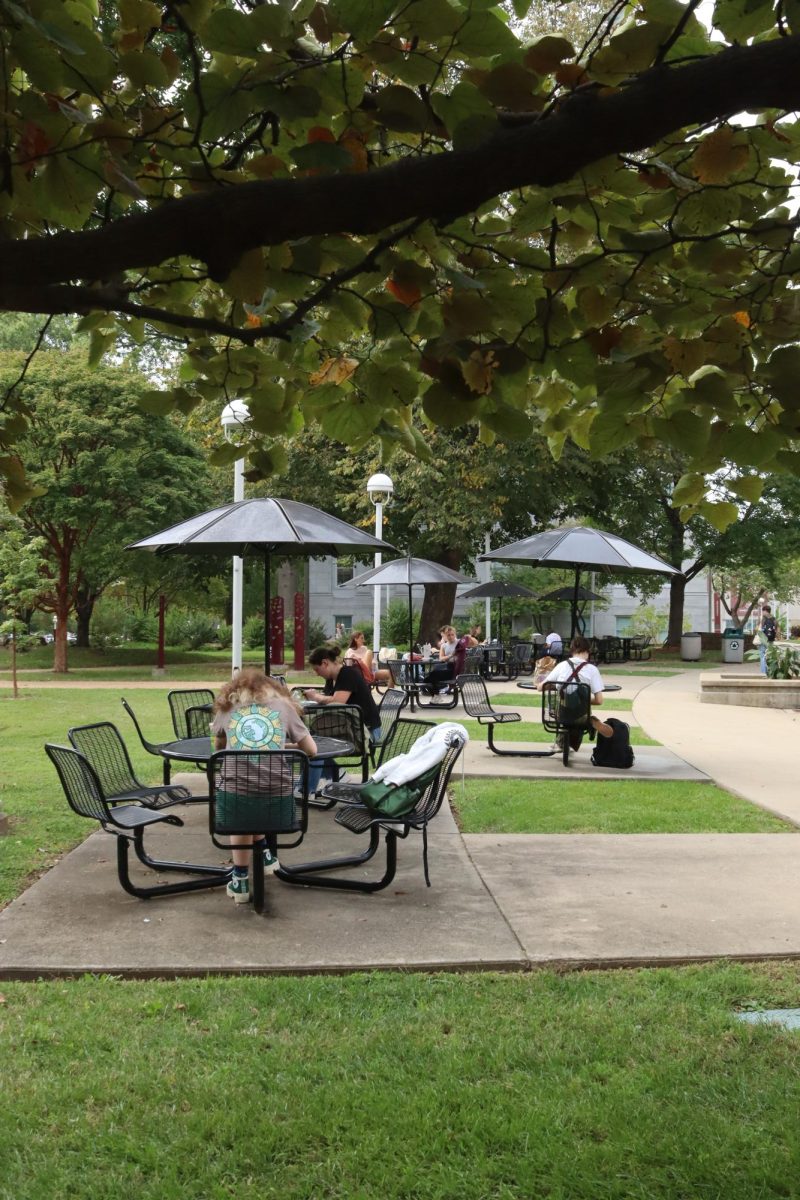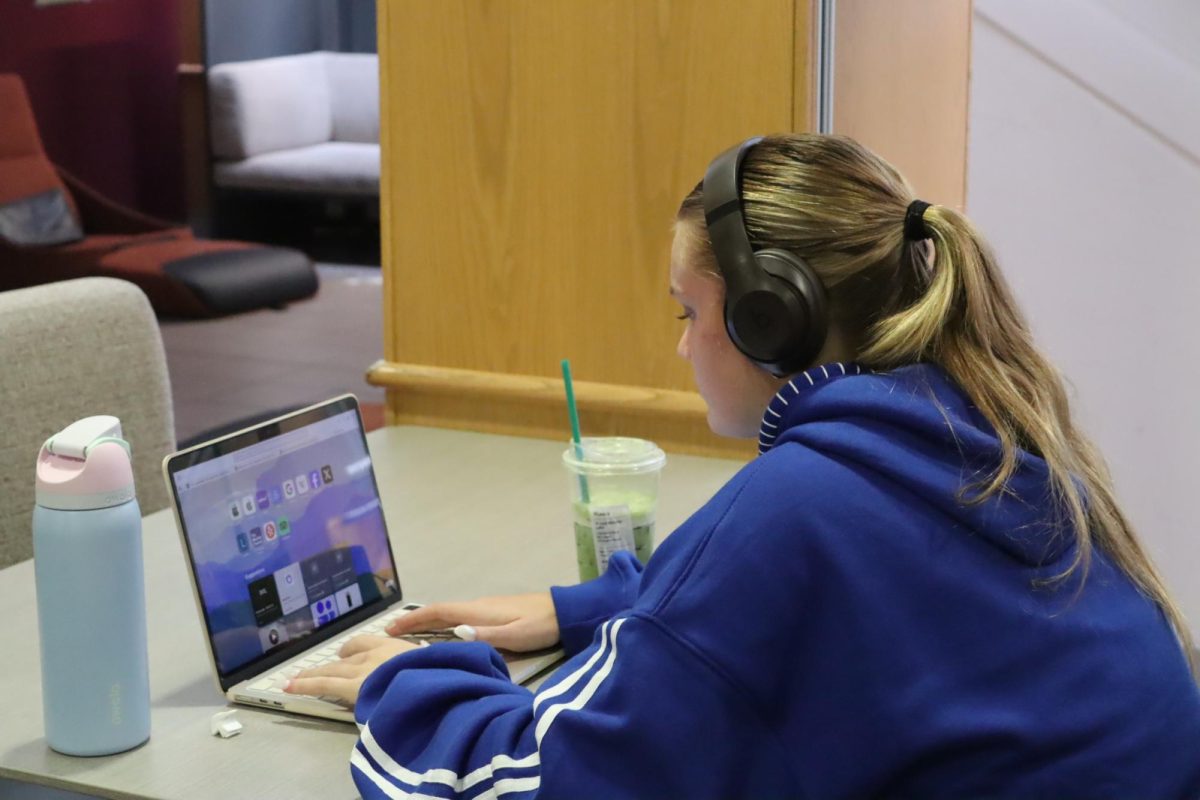Devices have been a theme for the world’s youth in recent decades. They have benefits, such as improved communication with peers outside of school and work. Yet, devices have also caused multiple issues, such as bullying, the spread of fake news and privacy concerns. This phenomenon is known as “oversocialization,” a problem affecting teens and adults nationwide. Causing many problems socially and mentally.
People interpret oversocialization in different ways. Senior Emily Jelinek said she sees oversocialization occurring with the quick spread of information.
“A lot of people will spread information, mostly through Instagram and Snapchat,” Jelinek said. “Most times [the] things that people might not find as important they spread, and it gets around really easily because everybody will see it on their [Instagram] stories … then people [will] talk to their friends, and then their friends talk about it to other people. It can spread really quickly.”
Over-socialization cannot only affect the youth but also has an impact on adults.
“I do not feel that this is just kids, as I see adults more engaged with their phones than they are with people,” Launch Sociology Teacher at Springfield Public Schools, Gary Neal said. “No matter if I am at school with students and adults or out in public — shopping, eating [and] etc — people are attached to their devices and often have no idea what is going on around them.”
With the rise of social media, bullying has morphed into cyber bullying, invading people’s homes through their devices.
“Some people are using platforms to their advantage, and exerting power almost over people,” social worker at Nixa Public Schools Jennifer Finke said. “[People] can say whatever they want and that can lead to bullying as well just because you’re more confident whenever you feel more anonymous.”
Fake news is becoming an increasingly serious problem. While fake news is commonly associated with big news stories, fake news about an individual can quickly spread through social media apps like Snapchat — a major issue for the user, leading to potentially harmful effects.
“Fake news is not good for young people or older people,” Finke said. “Just because you’re taking whatever you see at face value, and you’re forming an opinion without really … knowing what you think. So you’re just like, ‘Oh, this person said it. I like what they wrote, I’m going to believe what they say.’ ”
Fake news can take shape in a variety of ways.
“If it was fake news like, ‘Regina is amazing and she gives Snicker bars to everybody,’ OK, don’t care if that goes around,” Nixa Public Schools Social Worker Regina Hower said. “But if it was something like, ‘She’s horrible and she drowns kittens after school,’ yeah, that would [spread] like wildfire, and it would be detrimental.”
Through social media, people can document their lives on their accounts. But this can result in oversharing personal details online.
“Some people do [overshare],” Jelinek said. “But I also think that if you want to post it on your social media, that’s up to you, because it’s your account.”
Protecting one’s privacy has changed in the changing world of devices. For example, oversocialization can lead to a loss of privacy.
“The biggest issue I see with privacy issues is that anything put online can be used by anyone,” Neal said. “Many times people think they can delete it, but it is still out there and can be used to hurt people at times. I know students who were targeted as part of scams with people pretending to be someone they know on social media only to get money from [an] unsuspecting friend.”
Privacy concerns also include videos taken of people that are then used out of context.
“[Myself and Finke] go into classes a couple of times a year, and I do sometimes worry that kids are videotaping us,” Hower said. “Because imagine [someone] putting it online, if we said something stupid.”
Over-socialization can cause mental health issues. Neal said one of these issues is low self-esteem.
“We often compare ourselves with the images and videos we see others post,” Neal said. “We care because we see how many followers they have and believe that leads to popularity. What we don’t realize is that [it] is just an edited snapshot of a time that the person has perfected to put out there in a masquerade of what is really going on in their life.”
Comparing oneself to another on social media can negatively affect one’s self-image.
“[If] you’re struggling with something in your life, and you go on social media and you see somebody and everything looks perfect, that makes you feel worse,” Hower said. “… It can be detrimental to your mental health.”
Despite all of the negative effects over-socialization can cause, there are ways of mitigating these effects previously mentioned.
“The easiest answer is to drop all social media but that is difficult for most,” Neal said. “The biggest thing is to treat people as you would like to be treated. Stay away from toxic people and sites and set limits on how much time you spend on social media.”
One way Finke assists her clients is by having them download self-help apps on their devices.
“I know that I’ve recommended people to download apps to track their behavior or track patterns for their mood,” Finke said. “So the next time they come talk to me they can say, ‘Yes, we can notice patterns,’ like, ‘I was sad four out of the seven days this week,’ … So I think it helps people realize kind of what’s going on in themselves.”
Constant Connection
Oversocialization leads to personal and social conflicts
Jack Edwards, Social Media Manager
December 11, 2024
Senior Emma Jelinek checks her social media notifications. “There’s definitely a lot of privacy issues,” Jelinek said. “I think if somebody found something out about somebody else, spreading that and
ruining that person’s sense of privacy is a really big issue.”
0
More to Discover
About the Contributor

Jack Edwards, Copy Editor
Junior Jack Edwards is the Copy Editor for the Wingspan Magazine. As well as being a staff member of the journalism group “Civitas Examiner,” a sector of the nonprofit known as “Civitas-STL,” an organization that promotes teens to be politically active. In his free time, Jack plays the electric guitar and piano.













